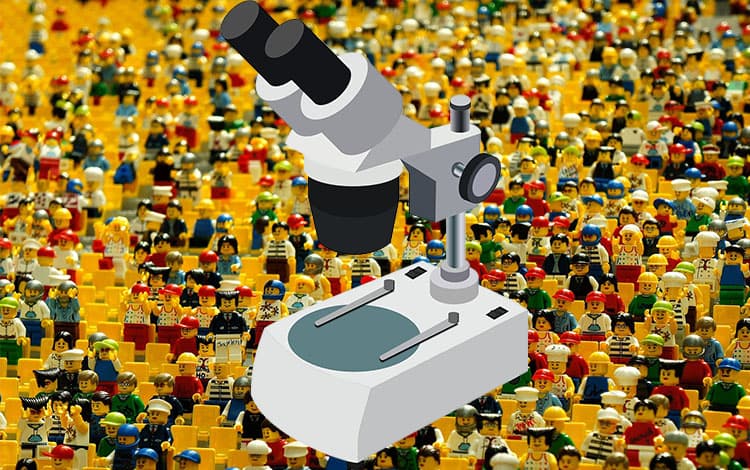Those in developing nations with emerging economies are often faced with not being able to make enough money to keep food on the table or shelter over their family's heads. Even with the so-called prestigious professions, like that of dentist or doctor, they too, in places like Venezuela for instance, are struggling day to day just to make ends meet. Many have thus turned to online work to survive. These hidden "microworkers" as they've come to be called, are doing tasks and jobs that machines alone simply cannot do.
Think of what you search for or how you utilize your digital resources on any given day—be it looking for a restaurant or downloading a new music app—all of this exists and is possible because of the presence of these microworkers. They, in many cases, provide the data used in the algorithms that enable machines to do their work. Yes, AI still does require a human element.
For example, it might be a microworker's job to tag certain songs with descriptions thereby providing algorithms with the respective "feelings" associated with a song. They also are the ones who create boxes around sections of the roadway so that driverless cars start to learn what obstacles there are.
That said, many frown upon the emergence of microworkers, as they argue that the pay is almost nothing and the people who do this work ultimately suffer for it. However, for many, especially in more impoverished regions of the world, this work has become a lifesaver.
In 2005, Jeff Bezos established the Amazon Mechanical Turk (MTurk/): this was the very first crowdsourcing marketplace. Amazon used MTurk to help sort through millions of duplicate pages as computers could not do those without missing small differences. There were thousands of workers involved; there is no hard and fast estimate, but many say that still today tens of thousands of microworkers work at Amazon's MTurk. Most based in the US and/or India.
What Does a Microworker Look Like?
An International Labor Organization (ILO/) survey throughout 75 different countries, discovered that on average the median age tended to be around 33 and a third of the microworkers surveyed were women.
And microworkers also are generally educated; only 18% had just a high school diploma, while 37% had a graduate degree, 20% a post-grad degree and more than half of all such degrees were within science and tech or engineering.
For so many in distressed countries, microwork has become a vital part of their lives. Some Syrians for example, who'd fled and are now refugees, helped by an organization called Preemptive Love and taught the necessary IT skills, are now relying upon microwork to help rebuild their lives.
It can be difficult at times though. A Venezuelan microwork, Rafael Pérez, suggests that filters applied to crowdsource sites can keep him from jobs for which he is otherwise well qualified. Not to mention, there is the issue of payment. Many microworkers will workdays on a task only to have the employer not pay in the end. Certainly they can try emailing, even calling, but in the end, who is there really to complain to?
Many have gotten savvier with time. Some microworkers know now to avoid various scams; they know to "test" sites before taking on an assignment. Otherwise, they will be out a great deal of time and money.
The Poor Pay of Microwork
Many people scrutinize the microwork system because of how poorly it pays. The ILO came up with an average of 4.43 an hour per micro worker. This is across several countries. Those in the US tended to make more at just under 4.70 an hour, while in places throughout Africa, microworkers only averaged approximately 1.33 an hour. These numbers also do not factor in the number of unpaid time workers spend on every task they undertake. Such unpaid time includes searching for the job, answering the questions asked, and filling out the online forms.
Returning to Rafael Perez, he says that on good days he'll average about 9.00 a day. This is enough to buy eggs, a kilo of flour and a kilo of beans. So perhaps they're not "living like kings" as they say, but according to Mr. Perez, at least he does eat well.
And the jobs will always be there, even if, and especially, as AI technology advances. Yes, machines may be able to distinguish between dog and cat for example, but you will always need humans to give the machines the details necessary to arrive at such conclusions. People have to feed in the data, it's as simple as that.
There is no government regulation applicable to any of the microwork platforms in existence. That said, the ILO is calling for some regulations to be put into place, as well as moving to require minimum wage along with greater payment transparency. Most are likely to agree that there needs to be some control over the system—especially as far as people not getting paid. They work all that time, and then receive nothing for their efforts; this is money they were counting on for the basic life necessities in some instances. Microworkers, in general, should have more support, not to mention recognition.
First Union Lending has helped many businesses outsource workers by giving them capital. We offer many loan products that can be tailored to you. Call today to find out your options!
